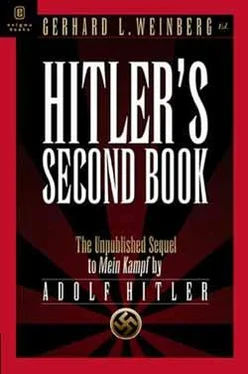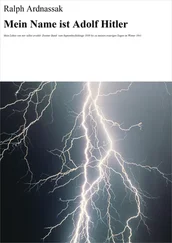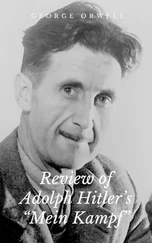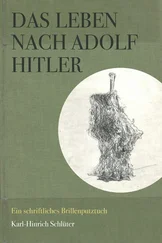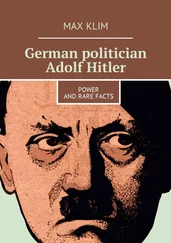Italy should espouse a union of Austria with Germany if for no other reason than to cut across the French alliance system in Europe. She should further also do this, however, in order to present other tasks to the German border policy germinated in consequence of her incorporation in a great Reich.
Moreover, the reasons which once induced Italy to take a stand against the union are not quite clear. Neither presentday Austria nor presentday Germany can be considered a military adversary of Italy for the time being.
But if France succeeds in bringing a general alliance in Europe into being against Italy, in which Austria and Germany take part, the military situation as such will not at all change whether Austria is independent or whether she is with Germany. Moreover one cannot actually speak of a real independence with so small a structure anyhow. Austria will always [They will always] hang on to the strings of a large power of some kind.
Switzerland cannot in the least prove the opposite, since as a State she possesses her own possibilities of existence, even if on the basis of tourist traffic. For Austria this is already impossible in consequence of the disproportion of the capital of this country to the size of the whole population. Regardless, however, what attitude Austria itself assumes toward Italy, in the very fact of her existence there already lies an easing of the military strategic position of Czechoslovakia which one day, one way or another, can make itself noticeable vis-
à-vis Italy’s natural ally as such, Hungary.
For the Italians, military and political reasons would speak in favour of regarding prohibition of the union as at least without importance, if not as something which answers the purpose.
I cannot conclude this chapter without establishing in detail who in fact bears the guilt that a Southern Tyrol question exists altogether.
For us National Socialists, politically, the decision has been reached. And at least I — who am most violently opposed to millions of Germans being dragged to a battlefield on which to bleed to death for the interests of France without a gain thereby accruing to Germany which would in some way be consonant with the blood sacrifice — I also refuse to recognise the standpoint of national honour as being decisive here. For on the basis of this viewpoint I would sooner have to march against France, which by her whole conduct has offended German honour in quite a different way, than Italy. I have already enlarged in the introduction to this book on the possibility of formulating a foreign policy on the basis of national honour, so there is no further need to take a position toward it. If now the attempt is made in our protest groups to present this attitude of ours as a betrayal or a renunciation of the Southern Tyrol, this can only be correct if, without our attitude, Southern Tyrol would either have not been lost altogether, or were about to return to the other Tyrol in the predictable future.
Therefore I see myself forced once more to establish in this exposition precisely who it was that betrayed the Southern Tyrol, and through whose measures it was lost to Germany.
The Southern Tyrol was betrayed and lost by the activity of those parties who, in long work for peace, weakened, or completely refused, the armament to the German Folk which it needed to assert itself in Europe, and by so doing robbed the German Folk of the necessary power for victory and thereby of the preservation of the Southern Tyrol at the critical hour.
Those parties who, in long work for peace, undermined the moral and ethical foundation of our Folk and, above all, destroyed faith in the right to self defence.
Thus the Southern Tyrol was also betrayed by those parties, which as so called Statepreserving and national parties, looked on this activity with indifference or, at least, without opposing a serious resistance. Albeit indirectly, they too are accessories to the weakening of our Folk’s armament.
The Southern Tyrol was betrayed and lost by the activity of those political parties who reduced the German Folk to being the stooge of the Habsburg big power idea. And who, instead of setting before German foreign policy the aim of the national unification of our Folk, viewed the preservation of the Austrian State as the mission of the German nation. Who, therefore, also in peacetime, for decades merely looked on as the Habsburgs systematically carried out their work of de Germanisation, indeed furnishing them assistance. Thereby they are coresponsible for neglecting the solution of the Austrian question by Germany itself, or at least by the decisive cooperation of Germany. In such a case the Southern Tyrol could have certainly been preserved for the German Folk.
The Southern Tyrol was lost in consequence of the general aimlessness and planlessness of German foreign policy which in the year 1914 extended also to the establishment of reasonable war aims, or prevented this.
The Southern Tyrol was betrayed by all those who, during the course of the War, did not cooperate to the utmost in strengthening German resistance and aggressive power. As well as by the parties which deliberately paralysed the German power of resistance, as well as those who tolerated this paralysis.
The Southern Tyrol was lost in consequence of the inability, even during the War, to undertake a new orientation of German foreign policy and to save the German element of the Austrian State by renouncing the maintenance of the Habsburg great power State.
The Southern Tyrol was lost and betrayed by the activity of those who, during the War, by raising the sham hope of a peace without victory, broke the German Folk’s moral power of resistance, and who instead of a manifestation of the will to wage the War, brought about a peace resolution that was catastrophic for Germany.
The Southern Tyrol was lost by the betrayal of those parties and men who even during the War lied to the German Folk about the non existence of Entente imperialistic aims, and thereby duped our Folk, estranged it from the unconditional necessity of resistance, and ultimately induced it to believe the Entente more than those who raised their voices in warning at home.
The Southern Tyrol was further lost by the grinding down of the Front, attended to by the Homeland, and by the infection of German thinking by the fraudulent declarations of Woodrow Wilson.
The Southern Tyrol was betrayed and was lost by the activity of parties and men who, beginning with conscientious objection to military service up to the organisation of munitions strikes, robbed the Army of the feeling of the incontestable necessity of its struggle and victory.
The Southern Tyrol was betrayed and lost by the organisation and the execution of the November crime, as well as by the contemptible and cowardly tolerance of this ignominy by the so called Statepreserving national forces.
The Southern Tyrol was lost and betrayed by the shameless acts of the men and parties who, after the collapse, defiled Germany’s honour, destroyed the esteem of our Folk before the world, and only thereby encouraged our adversaries to the enormity of their demands. It was further lost by the contemptible cowardice of the national bourgeois parties and patriotic leagues who dishonourably capitulated everywhere before the terror of baseness and villainy.
The Southern Tyrol was finally lost and betrayed by the signing of the peace treaties, and with this by the legal recognition of the loss also of this area.
All the German parties together are guilty of all this. Some have knowingly and intentionally destroyed Germany, and others in their proverbial incapacity and in their cowardice, which cries out to heaven, not only did nothing to stop the destroyers of Germany’s future, but, on the contrary, they actually played into the hands of these enemies of our Folk by the incapacity of their direction of domestic and foreign policy. Never before has a Folk been driven, like the German Folk, to ruin by such a marriage of baseness, villainy, cowardice and stupidity.
Читать дальше
